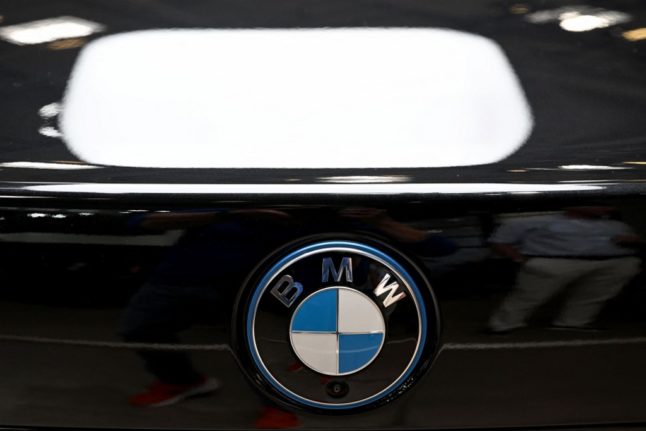The residents of Strasskirchen, around 90 minutes’ drive from Munich with a population of around 2,700, are being called upon to vote in a referendum on the construction of the factory.
With German industry in a slump amid slowing global demand and high energy costs, the project is billed as a vote of confidence in the future of products “made in Germany”.
It also comes at a crucial time for BMW as the car industry transitions from combustion-engine vehicles to electric-powered ones. But in Strasskirchen, some residents fear the factory will transform their leafy village on the edge of the Bavarian forest into an industrial zone with roaring trucks.
“More than 100 hectares of prime arable land would be destroyed forever,” a mistake “in view of climate change”, said Thomas Spoetzl, 44, a spokesman for local residents who are opposed to the plans.
Martin Goetz, a 45-year-old native of Strasskirchen and spokesman for the other side, disagrees.
High-voltage batteries
The factory would be “a huge opportunity for the region to invest in sustainable technologies and jobs for the future”, he said. The two camps have been at loggerheads for months.
BMW wants to invest “several hundred million euros” in the plant, which will be “at the heart of the development of electric vehicles in Germany”, according to Alexander Kiy, who is in charge of the project.
The factory would employ more than 3,200 people and churn out 600,000 high-voltage batteries a year to supply electric cars made at BMW’s plants in Regensburg, Munich and Dingolfing, the company’s largest European site.
If Strasskirchen votes against the plant, it would be a huge blow to BMW’s planned range of electric vehicles, scheduled to hit the market from 2025.
Because batteries are large and heavy, it makes sense for them to be produced as close as possible to vehicle assembly lines. For this reason, BMW has already built battery factories to supply its plants in Hungary, the United States, Mexico and China.
“For Bavaria, and for Germany in general, it must still be possible to create a major industrial site of this type,” said Armin Soller, mayor of the nearby village of Irlbach.
But as things stand at the moment, “there is a clear reluctance to create industrial sites in Germany”, said Milan Nedeljkovic, a board member at BMW in charge of production.
‘Germany pact’
Germany “needs a commitment to economic growth, especially at a time of transformation” in terms of energy and digital technology, he said.
Europe’s biggest economy has drawn several major investments in recent months as it seeks to bring home production of vital supplies, such as semiconductors, in a bid to cut reliance on China.
In a drive to move faster, Chancellor Olaf Scholz recently also called on the country’s regions and municipalities to support a “Germany pact” to make the country more agile, dynamic and less bureaucratic.
But the business community remains unconvinced. “We need a global concept that will ensure we remain competitive and maintain our locations,” Arno Antlitz, Volkswagen’s chief financial officer, told reporters in Frankfurt on Monday.
Just days ahead of the referendum, the mayor of Strasskirchen, Christian Hirtreiter, voiced confidence that the mood was “clearly in favour of BMW”.
A victory for the car giant would be against the tide of companies leaving the region. In July, for example, a paper mill on the nearby Plattling industrial estate with 500 employees announced that it was shutting down — due to high energy costs.




 Please whitelist us to continue reading.
Please whitelist us to continue reading.
Member comments